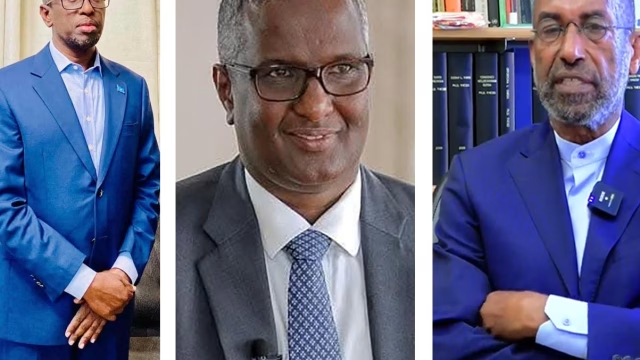On 28 January 2016, the Special Representative of the Secretary General (SRSG) of the United Nations…
 On 28 January 2016, the Special Representative of the Secretary General (SRSG) of the United Nations for Somalia Mr Michael Keating gave the Security Council (SC) a report that was not an accurate representation of the situation in the country. We do not think the SRSG intended to mislead the SC, but in his eagerness to paint a bright picture about the political crisis in Somalia and the positive role the international community is playing, he made a few sweeping statements that were not supported by evidence.
On 28 January 2016, the Special Representative of the Secretary General (SRSG) of the United Nations for Somalia Mr Michael Keating gave the Security Council (SC) a report that was not an accurate representation of the situation in the country. We do not think the SRSG intended to mislead the SC, but in his eagerness to paint a bright picture about the political crisis in Somalia and the positive role the international community is playing, he made a few sweeping statements that were not supported by evidence.
He told the SC that the Federal Government of Somalia (FGS)has taken the decision to conduct the election for the Lower House of the parliament on the 4.5 clan model instead of the regional model which was favoured by the majority of the Somali people. In a survey carried out in the capitals of the four Member States of Somalia and in Mogadishu by The Heritage Institute for Policy Studies, a semi-official organisation that is based in Mogadishu, 64% of the respondents said they were unsatisfied or highly unsatisfied with the 4.5 clan model; only Baidoa in Southwest State has shown a clear preference for the clan model (See Selection of the Next Somalia Parliament – The Citizens’ View, HIPS, December 2015). Despite this rejection of the model, the FGS declared it the preferred model for the 2016 election, and the international community endorsed it, completely disregarding the wishes of the Somali people.
The SRSG presented it as a “bold decision” and a “watershed moment” in Somalia. It would have been more prudent for him to wait and assess the constitutionality (hence the legality) of the decision and the potential serious adverse consequences the clan model poses for the country, before leading the international community to endorse it so strongly. It seems that the new SRSG lacks the delicate stepwise diplomacy his predecessors have adopted in creating an atmosphere of cooperation between the parties rather than one of confrontation that the new SRSG has adopted in the few weeks that he was in the job. His support for President Hassan Sheikh Mohamud’s attempt to hijack the election with complete disregard of the constitution of the nation and the existing agreements that were signed by the parties and witnessed by his predecessors, is a prime example of the destructive attitude of Mr Keating.
Having failed in their attempt to convince Puntland State to join in the FGS’s illegitimate project of maintaining the clan system in Somalia, Mr Keating might resort to the usual combination of offers of virtual financial and development assistance to Puntland in exchange for accepting the 4.5 clan model. If that fails, Mr Keating and his employers may start wielding the all too familiar blunt instrument of labelling the Puntland president as an “obstacle to peace” and threaten him with “sanctions, travel ban, asset freezing, etc”. Those who remember how President Abdullahi Yusuf was treated by the so-called international community, when he appeared to be a stumbling block in the way they were manipulating the country, will be forgiven for seeing history repeating itself in Puntland.
The countries that gave their unqualified support for the decision of the FGS are clearly trying to influence the political system in Somalia in clear violation of the sovereignty of Somalia and show their contempt for the Somali people. The often repeated mantra “Somali-led and Somali-owned” process does not stand to scrutiny. The UN and the SRSG have always been an integral part of Somali political problem. Ever since the passing of SC Resolution 794 on December 3, 1992 authorising, under Chapter VII, the use of all necessary means to provide relief to the starving people, Somalia became a dominion of the international community, and the Somali political leaders were used as front to legitimise the interventions and manipulation.
There were overt as well as behind the scene manipulation of the internal politics of Somalia. This was seen in its most flagrant form in 2008 when SRSG Ould Abdalla manipulated the “election” of Sheikh Sharif Sheikh Ahmed, the leader of the Union of Islamic Court (UIC), as president of the Transitional Federal Government by doubling the members of parliament from 275 to 550 and giving the UIC the freedom to handpick the new members. When the term of that parliament (which was appropriately called the Ould Abdalla Parliament) and the president ended, the parliament was reduced to its original 275 members.
Read full Article in (PDF)


